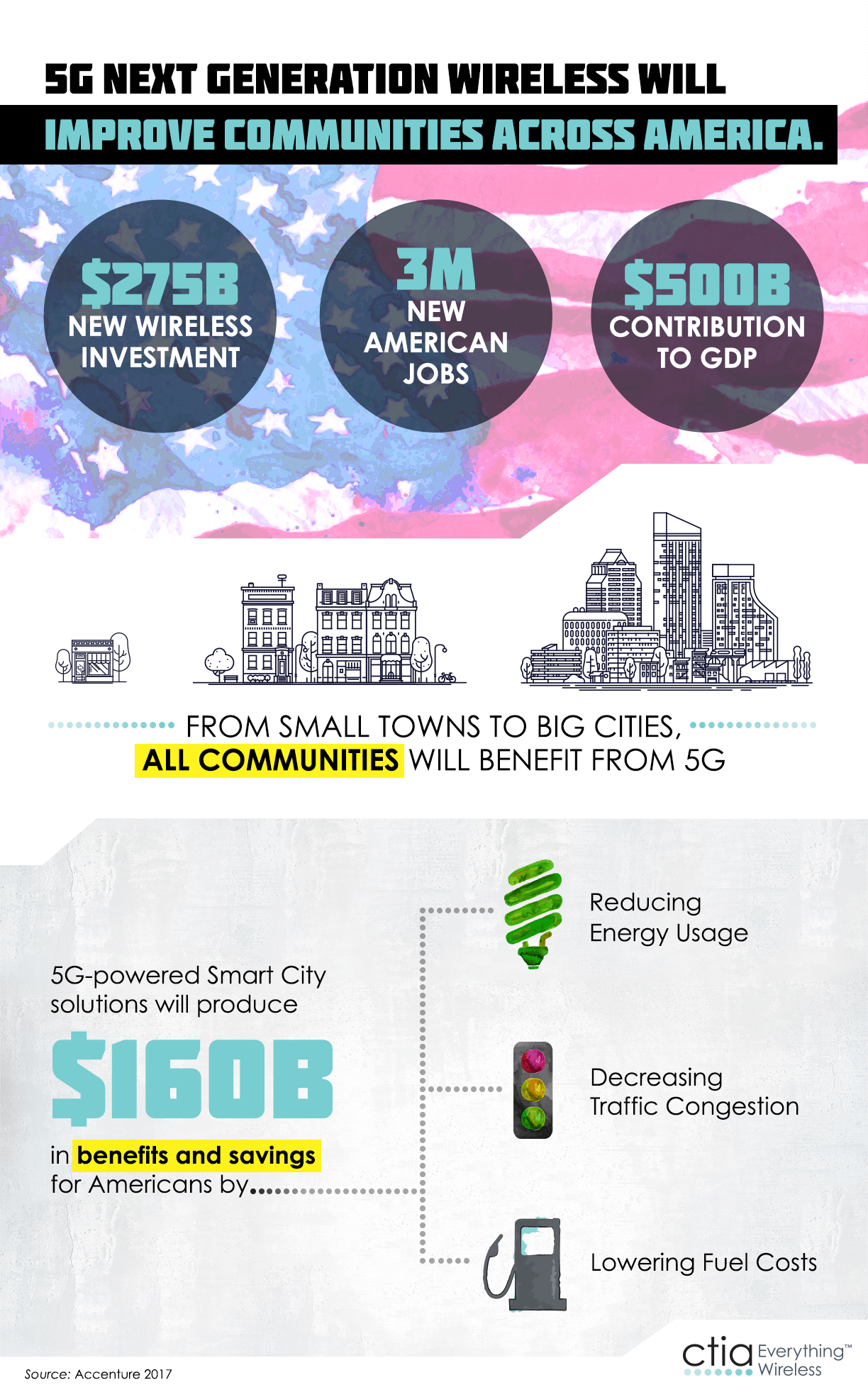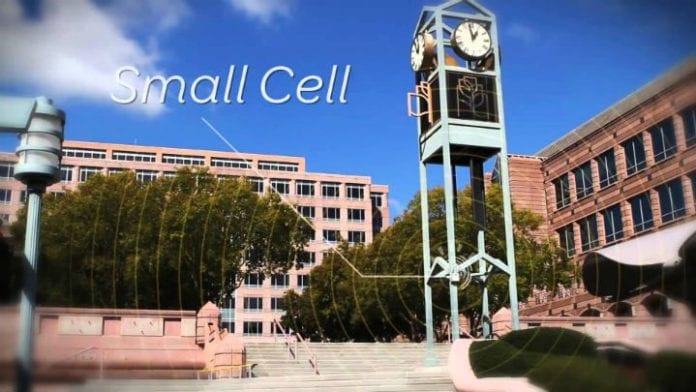CTIA-commissioned report from Accenture targets local communities in touting workforce and economy boost from 5G deployments.
Nothing boosts an argument for investing billions of dollars into a technology like throwing some large numbers behind that argument tied to job creation and a positive financial impact on the economy.
And thus, wireless telecommunications trade group CTIA released details of a report it commissioned from Accenture showing the deployment of “5G” wireless networks could create up to 3 million jobs and add approximately $500 billion to the U.S. gross domestic product “through direct and indirect potential benefits.”
Highlights of the report, dubbed “Smart cities: How 5G can help municipalities become vibrant smart cities,” indicate wireless operators will invest as much as $275 billion over the next seven years into their networks as they build out 5G systems. That build out is forecast to result in the creation of 350,000 new construction jobs and a total of 850,000 jobs when considering suppliers and other partners. More broadly, the report states 5G could create an additional 2.2 million jobs “in communities across the country.”

As highlighted by the title, the report is targeted at local communities with an underlying pretense of getting local governments on board with the expected deployment challenges the mobile telecom industry is beginning to face in terms of installing the necessary hardware to support 5G networks. These are expected to include hundreds of thousands of small cells to support millimeter wave spectrum and the necessary backhaul infrastructure.
That pretense is seen in report comments such as “the study calls upon municipal leaders to consider a new approach to wireless siting policies,” and “the study strongly suggests changes such as streamlining local permitting and regulations to account for the size and number of small cells needed, improving access to public rights of way and changing wireless antenna fee structures to support the new small cell deployment model.”
“Not only will 5G deployment unlock substantial job growth and economic gains in cities and towns across the country, it will help make our lives safer,” said CTIA President and CEO Meredith Attwell Baker, in a statement tied to the report. “The Accenture report importantly underscores the need for policymakers at all levels of government to take action – cities and states with modernized zoning and siting rules that support tomorrow’s networks will be the first to realize the economic and civic benefits of 5G.”
In addition to the potential economic and employment benefits, the report plays on the growing interest in “smart city” programs in attempting to get communities on board with 5G.
“5G-powered smart city solutions applied to the management of vehicle traffic and electrical grids alone could produce an estimate of $160 billion in benefits and savings for local communities and their residents,” said Tejas Rao, managing director and mobile offering network lead for Accenture’s North America practice. “These 5G attributes will enable cities to reduce commute times, improve public safety and generate significant smart-grid efficiencies.”
This is not a new argument for CTIA, having been involved in past legal action tied to the deployment of traditional cellular network equipment.
CTIA worked with Recon Analytics on a previous report released in 2012, which focused on similar benefits tied to government regulators unleashing more spectrum into the telecommunications market. The report cited historical data to claim that for every 10 megahertz of licensed spectrum offered up for consumption, the nation sees a $1.7 billion boost in GDP and adds 7,000 jobs.
Bored? Why not follow me on Twitter.

